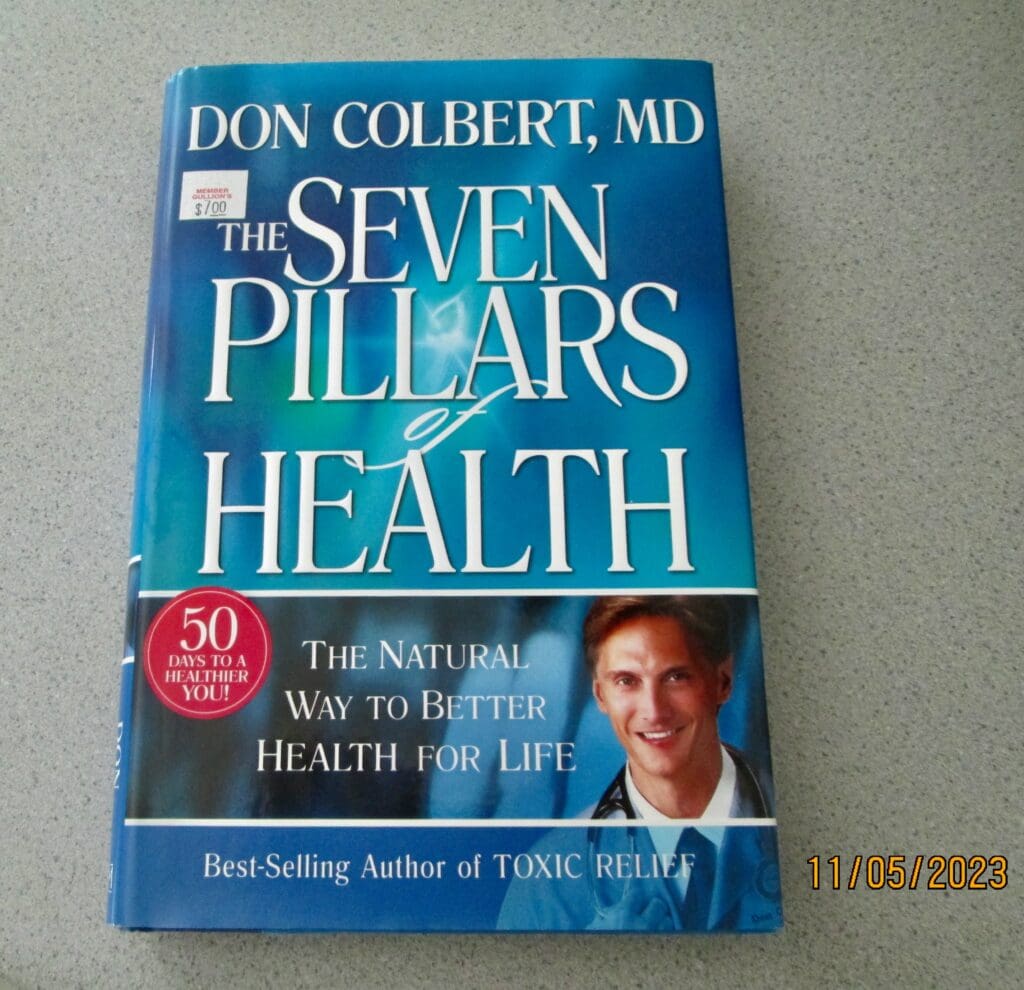
As I’ve been going through The Seven Pillars of Health book, by Dr. Don Colbert, I found it interesting that I would land on the “living food pillar” for the week of Thanksgiving.

When you think of living food, it is food that you could plant part of it, or a seed from it, and grow the same food again. You can take celery, cut the top off, plant the bottom and it grows more celery.
Last year I took a cherry tomato from the grocery store that had become too ripe on my kitchen counter, squeezed it until the seeds sprayed out in a pot of dirt I had prepared, and several plants grew from it. One of these plants supplied us with cherry tomatoes all summer.
I have been using sour dough starter for awhile now. It has to be fed flour and water about every 1-2 weeks or it will die. If something will die if you don’t feed it, then it must be living.
Living foods protect your body from:
- Cancer
- Heart disease
- Degenerative diseases
- Obesity
- Sharpen your mind
- Energize you
- Enliven you (see p. 65)
Living foods consists of “fruits, veggies, and whole grains.” (p. 66)
Dead foods consists of “chemicals, including preservatives, food additives, bleaching agents… [and] place a strain on the liver.” (p.67)
On Day 17 of the book, Dr. Colbert writes, “What the Bible Says About Food.” (pp.73-75) It is worth buying the book just for the history of how God’s rules for food changed as you study through the Bible— from plants and veggies to the addition of meat after Noah’s flood. In Leviticus and Deuteronomy there are Biblical rules for what meats to eat and what meats to avoid. Pork, shellfish, and catfish would have been avoided by the Jewish people throughout history, including Jesus.
The rules changed again after Jesus’ death on the cross, and 1 Timothy 4:4-5 says, “For every creature of God is good, and nothing to be refused, if it be received with thanksgiving: For it is sanctified by the word of God and prayer.”
“The apostles and elders also gave their recommendations (Acts 15:28-29) about not eating food that has been sacrificed to idols, or eating blood or the meat of animals that have been strangled. But nowhere did they say to follow the dietary laws of Leviticus 11 or Deuteronomy 14.” (p.74)
The following words really hit home with me while trying to decide how to improve my health by what I eat.
Dr. Colbert wrote, “As a Christian, you are free to eat anything you want. Your diet will not keep you from heaven, but if you continually eat unhealthy foods, you will get there much sooner. As Paul wrote, all things are permissible, but not all things are beneficial. (See 1 Corinthians 6:12.) We must choose a diet that is good for us. Christians are supposed to be ‘living epistles.’ Non-Christians should look at us and visibly see a difference, not only in our attitude but also in our very appearance, which begins with what we eat.” (p. 74)
Dr. Colbert also says, “I believe God’s initial plan for vegetarianism, His first and best plan for mankind, should carry a lot of weight with us. I don’t promote strict vegetarianism—and neither does God; after all, He told Peter to ‘get up, kill and eat’ (Acts 10:13)—but I do note that vegetarians live longer and may have lower incidences of heart disease and cancer…. A significant study of Seventh-Day Adventists who ate little or no meat showed increased longevity of life of 7.28 years in men and 4.42 years in women. The bible itself gives a real-life example of vegetarianism’s benefits in the Book of Daniel….” (p.74)
Over the next pages of the book, Dr. Colbert gives extensive lists of what to eat, what not to eat, how to eat it, and even what cookware to use for prevention of risks to your health. This section of the book has to be taken in very slowly and absorbed a little at a time. I cannot stress enough how important this book is for improving health, and I highly recommend adding it to your library shelf.
So… question of the week— Could you eat a vegetarian Thanksgiving meal?

Thanks for the info and book review, Jane. Hope your food plan brings you health.
Thank you, Joni. I think you have a great food plan in place and it is healthful for you. I’m still a work in progress.
Jane,
My eldest and his family are vegans. One year, I prepared a totally vegan Thanksgiving. It wasn’t bad, but I’m not too fond of To-Furkey. It was harder too because it wasn’t food I would normally prepare.
Hubby and I did WFPB for about a year. Our bloodwork improved greatly! But we didn’t lose weight. When we switched to Keto—our numbers rose e dramatically!! Not good!! So now we are eating much smaller meals, a lot less meat (no red meat) and we’ve cut out breads and such. Limited graiins. Tons of veggies. We feel better now. WFPB can be difficult.
Praying you find what works for you!!
D
It is certainly a journey to find good health as we age, and all the information we get is so conflicting. I think you really have to just figure out what works for you and it is not the same for everyone. Thanks for sharing your journey, Debbie. It is helpful for me to hear, and I’m sure for others, too.
Great information, Jane. Thank you for sharing during Thanksgiving. Good things to keep in our minds.
Thanks, Tim. I hope you and Sarah had a great Thanksgiving with your family!